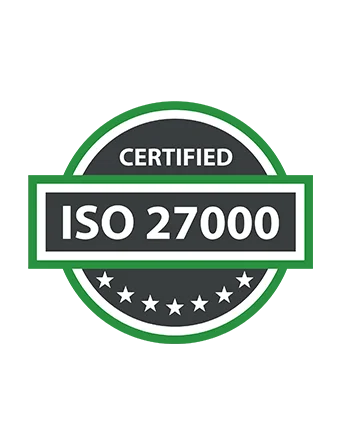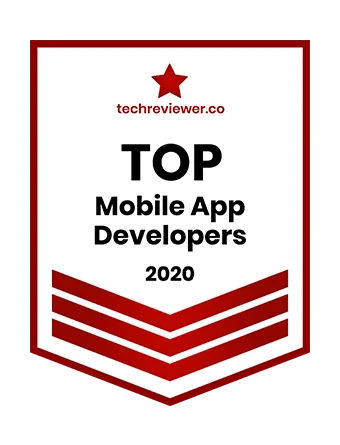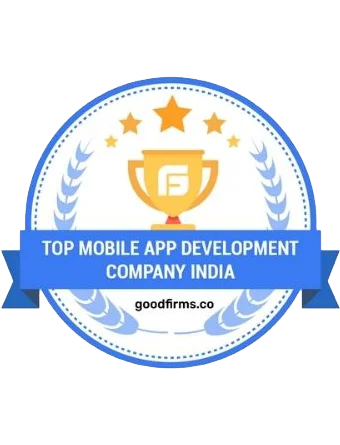The right agency for your project providing success with every solution
600+
Project completed


Project completed
At VOCSO, our Front-End Development team creates clean, intuitive interfaces using modern JavaScript frameworks. Whether it’s a custom dashboard or a Salesforce-integrated UI, we ensure smooth interactions and responsive experiences across devices.
At VOCSO, our Back-End Development focuses on secure, scalable architectures that power complex business workflows. We build APIs, automation layers, and integrations — including seamless connections with Salesforce for unified data and operations.
We design Generative AI solutions that automate content creation, improve workflows, and enhance digital products. Combined with Salesforce Einstein or custom AI models, businesses get smarter insights and faster decision-making.
We build Retrieval-Augmented Generation (RAG) systems that merge real-time data with generative AI. When paired with Salesforce data or CRM workflows, these systems deliver context-aware responses for customer support, sales, and analytics.
At VOCSO, we use Strapi’s headless CMS to deliver flexible, API-driven content systems. These can also work alongside Salesforce to help brands manage content and customer interactions efficiently across channels.
At VOCSO, we create Directus-based data hubs that simplify content and business data management. Directus integrates smoothly with platforms like Salesforce for centralized, API-ready data access.
We develop scalable, real-time applications with NodeJS, ideal for product dashboards, automation systems, and custom integrations. NodeJS also supports powerful Salesforce integrations for unified backend workflows.
At VOCSO, we build robust MERN stack applications tailored to your business goals. These applications can also be enhanced with Salesforce integrations to streamline CRM workflows and create cohesive digital ecosystems.

Tailored Salesforce setups with custom objects, workflows, and automation.
Streamlined sales pipelines, customer support systems, and operations workflows.
Personalized campaigns, automated customer journeys, and improved engagement.
Modern, fast, component-based UIs built for better user experience and efficiency.
Seamless integration with ERPs, payment gateways, apps, and internal systems.
Partner, customer, and employee portals with secure access and custom UI.
Automated approvals, notifications, lead routing, and multi-step processes.
Salesforce customization for education, healthcare, finance, retail, and more.
With a Dedicated Team of experienced Salesforce Developers at your disposal, you control the whole development experience.
This model provides cost predictability and is ideal for well-defined projects with a clear scope, where changes are minimized, and the project stays within a fixed budget
You pay as you go, leveraging a flexible approach where you're billed for actual hours spent by our full stack developers.
Let's discuss the right engagement model for your project?
Schedule a call
"Vocso team has really creative folks and is very co-operative to implement client project expectations. MicroSave Consulting had great experience working with Anju and Prem."

"Working with Deepak and his team at Vocso is always a pleasure. They employ talented staff and deliver professional quality work every time."


"I am working with VOCSO team since about 2019. VOCSO SEO & SEM services helping me to find new customers in a small budget. Again thanks to VOCSO team for their advanced SEO optimization strategies, we are now visible to everyone."

"We love how our website turned out! Thank you so much VOCSO Digital Agency for all your hard work and dedication. It was such a pleasure working with the team!"

"It was an amazing experience working with the VOCSO team. They were all so creative, innovative, and helpful! The finished product is great as well - I couldn't have done it without them"

"I want to take a min and talk about Deepak and Vocso team.We have outsourced web projects to many offshore companies but found Deepak understands the web content management and culture of US based firm and delivered the project with in time/budget . Also in terms of quality of product exceeds then anything else on which we work on offshore association I would recommend them for any web projects."

"Hi would like to appreciate & thanks Deepak & Manoj for the assistance any one thats look in to get web design They are very efficient people who can convert a little opportunity to fruitful association."

Understand your requirements and agree on commercials.
Based on thorough discussion and strategy
Add functionalities with plugins and customization
Make your website business ready
Perform complete quality checks and go live
Let's find out the right resources for you
Schedule a callSalesforce is a cloud-based system you open in a browser or mobile app to manage everything about customers — sales, support, marketing, and internal workflows. Businesses don’t need to install software or manage servers; everything runs online. It keeps all customer data, communication, and tasks organized in one place so teams never lose track of leads or follow-ups.
Beyond being a CRM, Salesforce is also a platform where companies can build custom apps, automate processes, and connect multiple tools without heavy coding. It uses its own language (Apex) and modern UI framework (Lightning Web Components) to tailor the system for any business. This flexibility, automation, and ease of use is why Salesforce dominates the CRM market worldwide. Salesforce becomes the backend management system for any web app built on top of it, similar to a CMS — but it manages business data, not website content.
At its core, Salesforce helps companies manage every stage of the customer journey in one place. Instead of switching between different tools for leads, emails, support tickets, or reporting, Salesforce brings everything under one system so teams can work faster and stay aligned.
Keeps customer information organized Every detail — from first interaction to purchase history to support conversations — is stored in a single, up-to-date record.
Automates daily work Sales reps get automatic reminders, support teams get instant case routing, and managers get alerts when deals or issues need attention.
Makes collaboration easier Sales, support, and marketing teams see the same data, reducing miscommunication and speeding up decision-making.
Provides real-time insights Dashboards show what’s working, what’s slowing down, and where opportunities exist — without waiting for manual reports.
Grows with your needs Whether a business wants basic CRM features or wants to build custom workflows and internal tools, Salesforce expands with minimal effort.
Salesforce isn’t just a CRM — it’s a flexible cloud platform that adapts to the workflows of any industry. Whether a business deals with sales, customer service, operations, or field teams, Salesforce provides ready-to-use modules and automation tools that fit their daily processes.
Because it’s customizable, scalable, and integrated with thousands of apps, industries use Salesforce to solve very different problems: hospitals improve patient journeys, retailers personalize customer engagement, and financial institutions manage compliance with confidence. Here’s how real industries rely on Salesforce.
Salesforce unifies shopper data, automates loyalty, and connects online + store operations.
Centralized customer profiles
Automated loyalty, recommendations, win-back flows
Order, inventory, and support workflows
POS, ERP, delivery, and marketing integrations
Used as a secure backend for patient journeys and care operations.
Patient onboarding, appointments, service flows
Care-team collaboration and automated tasks
HIPAA-ready access controls and audit logs
Patient portals and mobile experience apps
A compliant backend for customer management and verification processes.
Relationship and advisory workflows
Automated onboarding, documents, and KYC
Secure data access via permissions
Integrations with banking and finance platforms
Backend for admissions, communication, and student lifecycle management.
Enrollment and admission automation
Student progress and lifecycle tracking
Parent–faculty portals
Academic dashboards and reporting
Connects sales, service, and supply chain operations.
Dealer and distributor management
Order-to-delivery tracking
Field service scheduling and mobile workflows
ERP, inventory, and production integrations
Both frameworks allow custom UI development on Salesforce — but they differ significantly.
Older, event-driven architecture
Slower performance
Still needed for some legacy orgs
Use Case: Existing Aura-heavy implementations needing incremental upgrades.
Built on native web standards
Faster, lightweight, modular
Reusable UI components for scalable UX
Use Case: Dashboards, data tables, form builders, portal UI, custom CRM pages.
For any new development, LWC should be the default choice — Aura is only used when required for compatibility.
Most businesses don’t realize that how they structure their Salesforce data determines what they can automate, personalize, or predict.
Stores customer info inside Salesforce objects
Great for sales pipelines, service processes, and internal CRM workflows
Works best when all data lives natively inside Salesforce
Use Case: Small–mid teams with clean CRM data, limited sources, and straightforward automations.
Unifies data from multiple systems (apps, websites, ads, support tools)
Creates a real-time customer graph and identity resolution
Powers hyper-personalization, advanced scoring, and AI
Use Case: Companies with multi-touch journeys — eCommerce, EdTech, marketplaces, SaaS.
We push Data Cloud when clients want end-to-end personalization or multi-system visibility. For focused CRM workflows, the standard Salesforce data model is simpler, cleaner, and more cost-effective.
Teams often overuse Apex or push Flows beyond their capacity. Both have roles—but knowing when to choose which saves time, money, and support headaches.
Low-code
Fast to build and modify
Great for business automations
Limited for heavy logic or large data volumes
Use Case: Lead routing, approval automation, post-case updates, email/SMS triggers.
High-performance custom code
Handles complex logic and large datasets
Required for deep system integrations and custom business rules
Use Case: Payment workflows, custom quoting engines, high-volume updates, third-party integrations.
We default to Flow for speed and maintainability, and use Apex only when logic, scale, or integrations exceed Flow’s limits. This balance protects your Salesforce from becoming “developer locked.”
No servers, automatic scaling, minimal DevOps
Best for: Businesses that want fast deployment without custom infrastructure.
Use AWS for large data, AI models, serverless compute
Benefits: Multi-cloud workflows, enterprise-grade customization
Best for: Companies needing heavy integrations (data lakes, machine learning, IoT)
VOCSO’s Tip: Native Salesforce is ideal for most. AWS complements Salesforce when deep integrations or large-scale compute are required.
You delivered exactly what you said you would in exactly the budget and in exactly the timeline. You delivered exactly what you said you would in exactly the budget and in exactly the timeline.






Salesforce offers a scalable, cloud-based platform that helps streamline sales, service, and marketing processes. Its flexibility and automation capabilities make it ideal for growing businesses that want better visibility and efficiency.
Yes. We tailor Salesforce objects, automation rules, user flows, dashboards, and integrations to match your exact business processes — not the other way around.
Absolutely. We integrate Salesforce with ERPs, marketing tools, payment systems, custom apps, and third-party APIs to ensure smooth data flow across your entire ecosystem.
Yes. We manage end-to-end CRM migration including data cleanup, mapping, import, validation, and post-migration setup to ensure a seamless transition.
Pricing depends on your required modules, customization level, automation needs, and integration complexity. We share a transparent quote after a short discovery call.
Yes. We offer continuous support for bug fixes, feature updates, automation improvements, and scaling your org as your needs grow.
We follow Salesforce best practices including role-based access, field-level security, encrypted storage, MFA, audit logs, and compliance-aligned configurations.
Yes. We develop tailor-made apps, components, triggers, and UI elements using Apex, LWC, and Flow to extend Salesforce beyond standard features.
Most implementations take 2–8 weeks depending on complexity. Integrations and large custom builds may require more time.
Yes — including Sales Cloud, Service Cloud, Marketing Cloud, Experience Cloud, and custom Lightning Platform development.